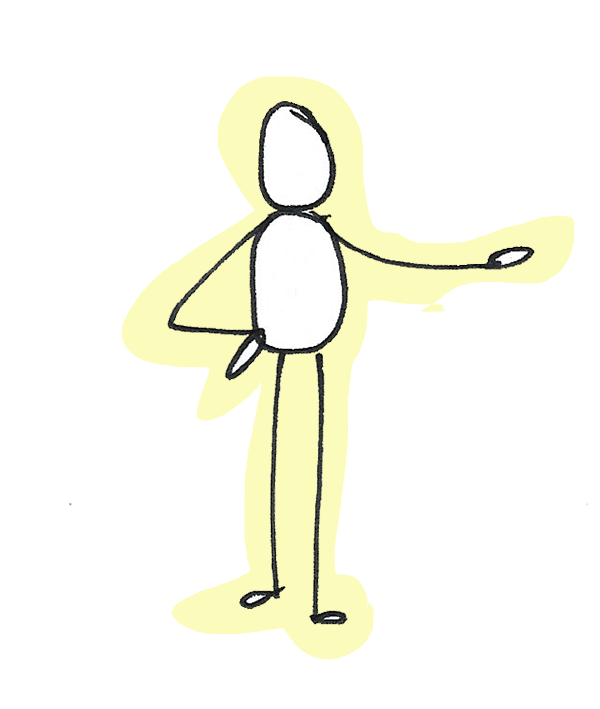The Citizenism Project
Journey to Reclaim the Role of the Citizen in the Political Ecosystem


The Citizen Brief
The citizen brief is central to reclaiming the role of the citizen in the body politics. It is a stand-alone document addressing a particular societal challenge, i.e the opioid epidemic. The citizen brief is utilized to establish a framework for a citizen-oriented treatment plan that provides a comprehensive, multi-stakeholder and multi-phase road map for citizen involvement in their political ecosystem.
About
We believe that an engaged citizenry, informed, passionate and respectful, is essential not only for our democratic process but also to achieve results that reflect the “common good” and achieve greatness for our nation.
The role of the citizen in our democracy is complex and challenging. There are many issues, and stakeholders seeking to capture the citizens' energy and support their cause or them as political actors. The recent political environment has escalated the challenge of citizenship and highlighted the need for an effective structure for citizen engagement. The citizen brief is central to reclaiming the role of the citizen in the body politics. It is a stand-alone document addressing a particular societal challenge, i.e the opioid epidemic. The citizen brief is utilized to establish a framework for a citizen-oriented treatment plan that provides a comprehensive, multi-stakeholder and multi-phase road map for citizen involvement in their political ecosystem.
It is best used as part of The Medical Case Presentation. The complete citizen brief provides a vision for the issue, reframes a problem, provides data, discusses the various issues, and proposes actions that can be undertaken by the citizen to address the problem.
Citizen Briefs are divided into sections that contribute information to create an impression and more clearly define the problems and potential solutions and provide a framework for engagement that includes multiple features to achieve the goals.
Similar to the Brandeis Brief, the citizen brief is a stand-alone document that incorporates and relies more on a compilation of scientific information and social science than on legal citations and addresses a particular societal challenge, i.e healthcare, inequality, systemic racism, immigration, climate change, abortion, the opioid epidemic. In addition, it serves to spotlight the various incentives of stakeholders in a particular area of discussion.
There are organizing frameworks in other fields, professions, sectors.
The scientific article, the medical case presentations, the legal brief, the business plan, the architectural plan, journalism why not the citizen brief. The Citizen Brief provides a framework to learn, educate, investigate, read, collaborate, engage, write, listen, speak, think. To seek facts. To confront “fake” and malicious information, to engage those who confuse reality with reality TV, and those who repeat falsehoods while insisting, against all evidence, that they are true. To evolve our role as citizens to its legitimate place in the political ecosystem.
The “Citizen Brief”* can be understood as a framework to facilitate dialogue that provides data and information about a specific issue or challenge. It is best used as part of The Medical Case Presentation. The complete citizen brief provides a vision for the issue reframes a problem, provides data, discusses the various issues, and proposes actions that can be undertaken by the citizen to address the problem. These actions can be personal, social, or political. The Citizen Briefs are uniquely positioned to address systematic changes over time.
Our civilization is defined in part by the disciplines — science, law, journalism — that have developed systematic methods to arrive at the truth. Citizenship brings with it the obligation to engage in a similar process. Good citizens test assumptions, question leaders, argue details, research claims. The citizen brief is a tool that can facilitate good citizenship.
Learn More About the Citizen Brief
The Citizen Brief on Shrink the Government

"A brief, usually an appellate brief, that utilizes economic, sociological, or other scientific and statistical evidence in addition to legal principle when presenting arguments in a case. Named after Louis D. Brandeis, who filed such a brief with the United States Supreme Court in Muller v. Oregon (1908) during his successful defense of a state law limiting the maximum workday of female laundry workers."
Brandeis brief — Legal Definition n.
The Citizen Brief in Action
Citizen Briefs: Challenges facing the 21-century United States presents an overview of the vices of the political system. In the coming years we will address the following symptoms of the “body politic”
-
Distrust: Distrust and alienation from the federal government and the toxic political process
-
Inequality: Inequality of opportunity, political status, income, wealth and employment
-
Healthcare: An unjust, dysfunctional and expensive healthcare (medical) system
-
Justice: An out of control legal system, police and prison system
-
Immigration: A broken system that has been a source of divisiveness.
-
Environment: Failure to respond to climate change
-
Surveillance: The surveillance state: Privacy and dignity under assault by government and corporations
-
Fiscal Health: The fiscal health of the nation: The budget, debt, and deficit
-
Taxation: Unfairness of the tax system that favors the rich and well connected
-
Infrastructure: A decaying infrastructure of roads, bridges and other public spaces
-
Education: A declining public educational system out of reach for many Americans
-
Declaration of War: Lack of consensus on how the United States should undertake a decision to go to war.